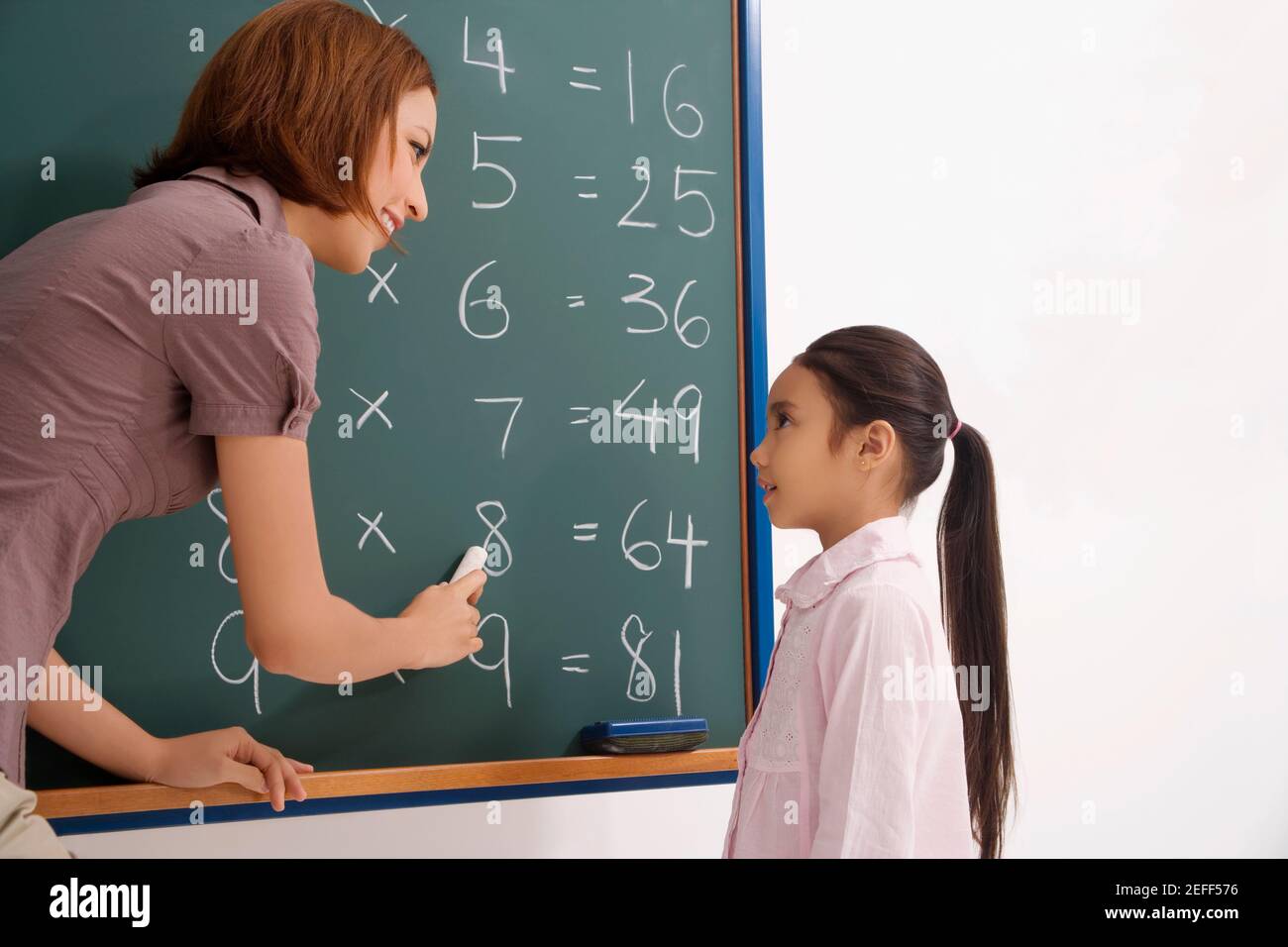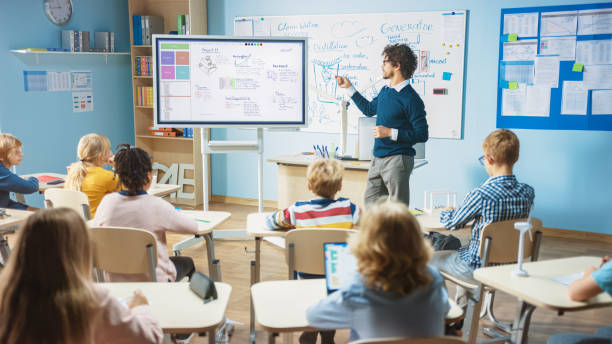Find the Best Primary Science Tuition Singapore for Enhanced Learning
Find the Best Primary Science Tuition Singapore for Enhanced Learning
Blog Article
Exploring the Various Mentor Strategies in Primary Science Education And Learning Today
The landscape of main scientific research education is advancing, with different teaching strategies getting prestige in modern class. Inquiry-based understanding, hands-on experiments, and the assimilation of modern technology are redefining how teachers involve young minds. Additionally, collective approaches and set apart instruction are being used to provide to the varied needs of students, enhancing both involvement and understanding. As we check out these methods, inquiries emerge about their efficiency and the ramifications for future academic practices. What might these changes in approach mean for the future generation of students?
Inquiry-Based Learning
Inquiry-Based Understanding (IBL) is an instructional strategy that encourages pupils to explore scientific principles via doubting, examination, and hands-on testing. This approach stresses the duty of pupils as energetic participants in their understanding, promoting critical reasoning and problem-solving skills. By involving with real-world inquiries, students become motivated and curious, which enhances their understanding of scientific concepts.
In IBL, educators function as facilitators, leading pupils as they navigate their inquiries rather than providing details directly. This student-centered technique enables distinction, suiting different finding out designs and rates. Students create abilities in creating hypotheses, making experiments, and evaluating information, which are crucial for clinical proficiency.
In addition, IBL cultivates cooperation amongst trainees, motivating them to share ideas and searchings for. This collective query promotes social skills and a sense of neighborhood within the class. The procedure of questions urges strength, as pupils discover to welcome failure as a tipping stone towards understanding.
Hands-On Experiments
Hands-on experiments are a vital element of efficient scientific research education and learning, complementing the principles of inquiry-based discovering. These experiments allow trainees to engage directly with clinical ideas, promoting a deeper understanding with experiential discovering. By manipulating materials and observing results, young students can understand abstract concepts in substantial means.
Such activities advertise critical reasoning and analytic abilities, as trainees hypothesize end results, conduct experiments, and examine outcomes. This process encourages them to ask inquiries, fine-tune their understanding, and create a scientific mindset. Hands-on experiments can be tailored to varied discovering designs, ensuring that all pupils have the chance to engage meaningfully with the web content.
Moreover, hands-on experiments typically motivate collaboration amongst peers, promoting team effort and communication skills. Operating in teams enables students to share ideas, go over searchings for, and pick up from one another, which enhances their overall educational experience.
Integrating hands-on experiments right into the key scientific research educational program not only enhances the discovering environment but also grows a lifelong interest in science. By actively joining their education, students are more probable to create an interest for clinical questions that prolongs beyond the classroom.

Innovation Assimilation
Incorporating modern technology right into main science education has become increasingly vital in promoting trainee interaction and improving discovering outcomes. The use of digital devices, such as interactive simulations, digital laboratories, and academic software application, offers students with opportunities to explore clinical principles in cutting-edge means. These sources assist in a much deeper understanding of complicated topics by allowing students to visualize and manipulate variables that would be impractical in a standard class setting.
Furthermore, technology assimilation urges customized learning experiences. Pupils can advance at their own speed, revisiting challenging concepts via multimedia resources, which satisfy various learning designs. This versatility not just supports specific growth yet likewise grows a sense of freedom in learners.
In addition, innovation acts as a bridge to real-world science, linking pupils with current research study and expert contributions. Accessibility to online data sources and clinical journals broadens trainees' perspectives on scientific questions and fosters crucial assuming abilities.
Collaborative Knowing
Joint learning plays an important duty in key science education by cultivating teamwork and communication abilities amongst pupils. This method motivates students to interact, share expertise, and participate in analytical, which enhances their understanding of scientific principles. By taking part in team tasks, students learn to verbalize their concepts, pay attention to diverse point of views, and bargain services, every one of which are essential abilities in both real-world and academic contexts.

Study suggests that joint discovering can result in boosted motivation and interaction in scientific research subjects, as pupils find satisfaction in shared experiences (primary science tuition Singapore). Furthermore, this strategy prepares students for future joint endeavors, furnishing them with the abilities necessary for efficient synergy in higher education and specialist atmospheres. Eventually, accepting collective discovering in main scientific research education and learning can dramatically enrich the discovering experience and promote a deeper understanding of clinical query
Set Apart Direction

Distinguished guideline can manifest in different means, such as varying the material, processes, or products of discovering. Educators might use tiered projects that provide varying degrees of intricacy, permitting trainees to work at their respective preparedness degrees. Furthermore, flexible organizing approaches can assist in partnership among pupils with various abilities, fostering peer understanding.
Analysis plays an essential function in this method, as it informs guideline and assists educators comprehend each student's one-of-a-kind requirements. Formative evaluations, such as observations and tests, can direct educators in changing their strategies to boost learning end results. primary science tuition Singapore. Ultimately, by applying separated my latest blog post instruction in key science education and learning, teachers can grow a more reliable and equitable learning atmosphere, encouraging all pupils to reach their full possibility in comprehending scientific sensations
Verdict
In recap, the varied mentor strategies in primary science education and learning, consisting of inquiry-based discovering, hands-on experiments, modern technology combination, joint knowing, and set apart instruction, collectively add to an extra effective knowing setting. These methods promote crucial thinking, analytic abilities, and a much deeper understanding of scientific ideas. By executing these strategies, teachers can produce interesting and encouraging class that resolve the diverse demands of pupils, inevitably cultivating a long-lasting passion in scientific research and enhancing academic achievement.
Inquiry-Based Knowing (IBL) is an instructional strategy that encourages trainees to discover clinical principles via wondering about, examination, and hands-on trial and error.Collective knowing plays an important role in primary scientific research education and learning by promoting teamwork and interaction abilities among students.Study shows that collective knowing can lead to increased inspiration and involvement in scientific research subjects, as students discover enjoyment in shared experiences.In cultivating a comprehensive understanding environment, separated guideline arises as a key strategy to accommodate the diverse demands and capacities of trainees in key scientific research education. Inevitably, by applying separated direction in main science education and learning, instructors can grow a more efficient and equitable understanding atmosphere, equipping all pupils to reach their complete capacity in understanding scientific sensations.
Report this page